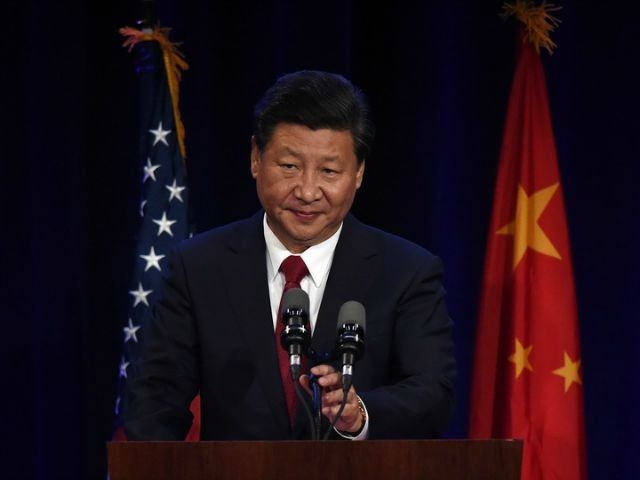The Chinese government appears to be reserving its ire towards the United States for its response to a recent arms sale to Taiwan, keeping its commentary limited on new U.S. Treasury sanctions against the Bank of Dandong for its ties to North Korea.
The U.S. Treasury announced Thursday that evidence shows the Bank of Dandong “acts as a conduit for illicit North Korean financial activity,” including money laundering and, as such, would be banned from the U.S. financial system. “While we will continue to seek international cooperation on North Korea, the United States is sending an emphatic message across the globe that we will not hesitate to take action against persons, companies, and financial institutions who enable this regime,” Treasury Secretary Steven T. Mnuchin said.
Mnuchin made clear in his announcement, “we are in no way targeting China with these actions.” Limiting the economic activity of a major bank in a communist nation, however, inevitably affects the economic health of the state.
Neither the Chinese Foreign Ministry nor the nation’s major state-run news agencies have taken an emphatic line against the move. The Global Times, typically among the loudest critics of the United States, is currently featuring an old article about the death of Otto Warmbier, a U.S. hostage of the North Korean regime, on its homepage, which predicted “increased US pressure on China to impose more sanctions on the regime.” The Times is also featuring an interview with the headline “Sino-US relations still strong.”
In an article on South Korean President Moon Jae-in’s visit to Washington Friday, however, the Global Times describes President Donald Trump as “short-tempered” and presents a pessimistic view on Seoul-Washington relations.
While the state newspapers act as unofficial mouthpieces for the communist regime, the Foreign Ministry takes on the task of issuing official statements. Reuters describes spokesman Lu Kang as “upset” by the North Korea sanctions but significantly more concerned with the news that the United States is planning to sell $1.42 billion in weapons to the Taiwanese military. The sale includes “early warning radar, high speed anti-radiation missiles, torpedoes and missile components” that Taiwan could use to protect its territory from Chinese expansionism in the South China Sea.
Spokesman Lu’s comments on the Taiwan sale made front-page news on the English-language page at Xinhua, another state-run outlet. “Lu told a daily press briefing that Taiwan is an inalienable part of China, and the United States selling weapons to Taiwan violates international law, the basic norms of international relations, and the principles of the three joint communiques between the two countries, harming China’s sovereignty and security interests,” Xinhua reported.
In contrast, Lu only reiterated China’s standard line on sanctions in response to the Treasury announcement. “Lu said China opposes any unilateral sanctions outside the framework of the UN Security Council, and has fully implemented the UN Security Council resolutions on the DPRK,” Xinhua reported.
The Global Times also condemned the Taiwan sale and threatened punishment for America’s insolence in engaging the Taiwanese government. “China cannot remain inactive against US provocations but the manner of our reactions cannot set us too far apart from where we can stand firmly,” the Global Times asserted. “China should seek more tangible outcomes in its engagement with the US than superficial symbols.”
President Trump’s administration and Trump personally have treated Taiwan’s government with extreme friendliness, with Trump openly challenging the One China policy, which requires America to not recognize Taiwan as a sovereign nation, early in his tenure. In an unprecedented move, Trump also accepted a call from Taiwanese President Tsai Ing-wen congratulating him on his electoral victory, angering China significantly.
Trump eventually accepted the One China policy, as have all American presidents since China became a communist nation, in a phone call with Xi Jinping in February.
The Taiwanese arms sale is the latest in a string of acts against Chinese communist interests since President Trump published a tweet regretting that China’s attempts to curb North Korea’s belligerence has failed. “While I greatly appreciate the efforts of President Xi & China to help with North Korea, it has not worked out,” he tweeted this month. “At least I know China tried!”
Following the tweet, the U.S. State Department downgraded China’s status as a human trafficking nation to “Tier 3,” reserved for nations that do not act to stop human trafficking, and condemned the crimes permitted in China as some of the worst in the world. Many of those illegally trafficked through China are North Korean defectors. Following that announcement, the Treasury imposed sanctions on the Dandong bank.

COMMENTS
Please let us know if you're having issues with commenting.